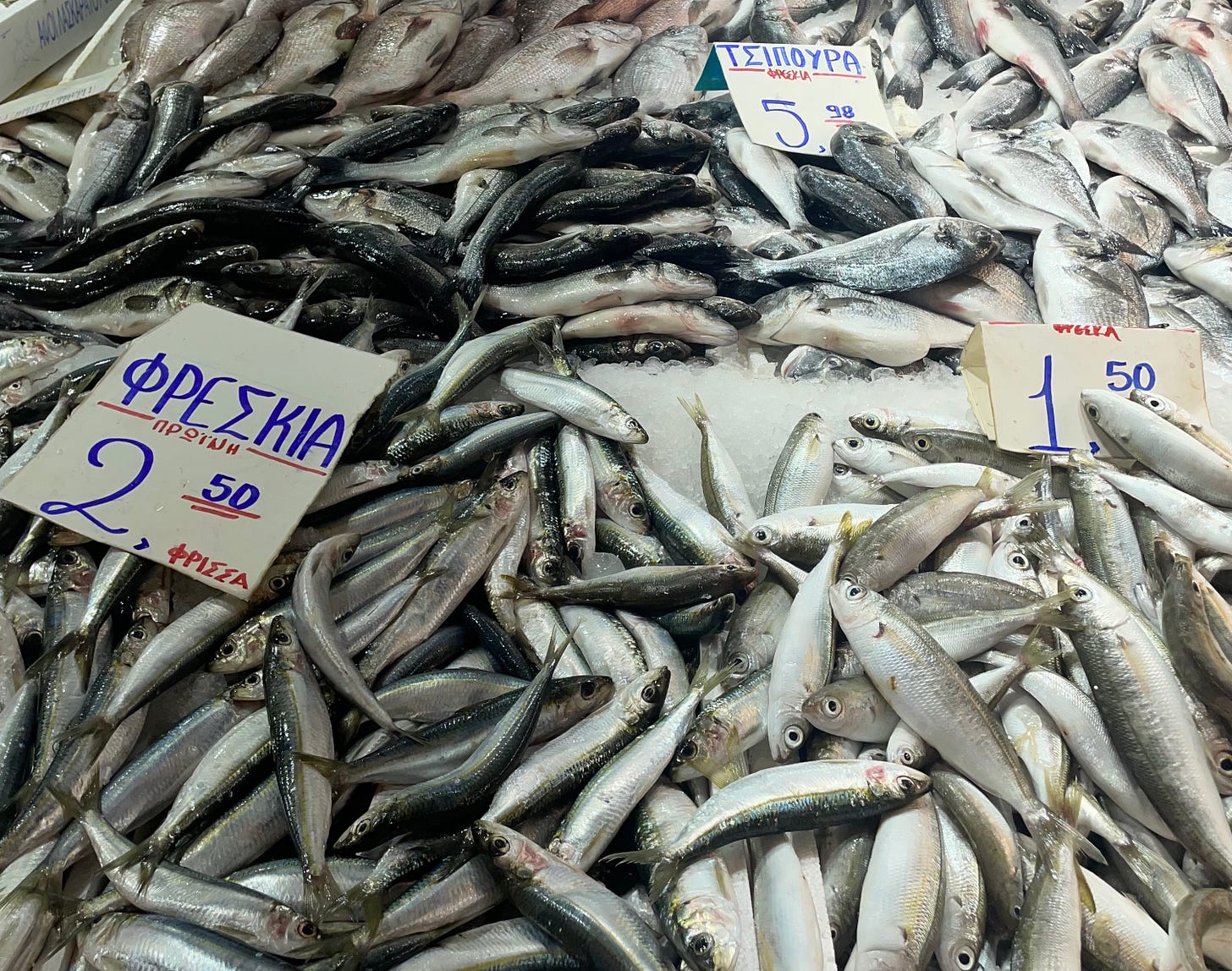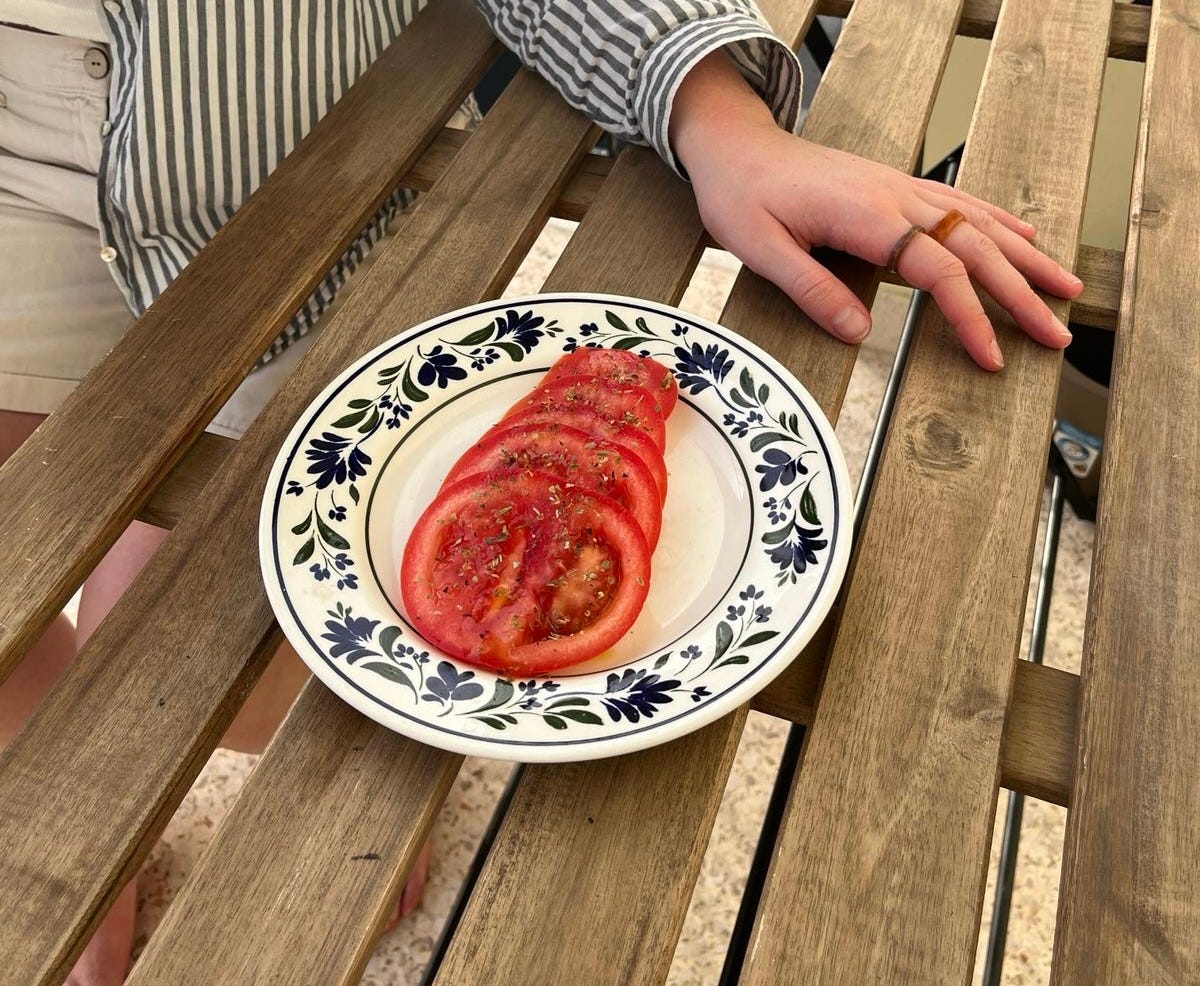This piece is a week delayed, because I moved to Athens last Saturday! My usual writing rhythm has been eclipsed by fried squid, ridiculous tomatoes, stray cats, the sound of mopeds late at night, the smell of orange blossom everywhere. I’m pinching myself that I’m here, and I’m wondering if this sense of marvel at every tiny thing will ever go away.
In Athens, it’s clear that the notion of community is regarded with a degree of sacredness - everything you need is within a walkable distance, each neighbourhood feels distinctive in architecture and creative offering to the next. On Saturday mornings, the laiki agora happens, the ‘people’s market’ - which I’ve been told is an important townsfolk tradition all over Greece. Locals flock to their closest one to buy fresh produce; flowers, fruit, honey, spices. It’s a weekly ritual of slow living, and everyone does it together.
But what doesn’t seem to exist in this culture is hostility towards newcomers. I’m sure that’s incredibly easy for me to say as a privileged white woman! But at no point - even with my clumsy (basically non-existent) Greek and my sunburnt tourist shoulders - have I been made to feel embarrassed or unwelcome. I don’t quite know how to articulate it, but there exists a tangible sensation of collective generosity, of patience, of taking you seriously even though you’re standing in a flap trying to remember how to ask which way the toilet is. I’ve never known anything like it in Europe before.
Luckily, I’ve found a word for this unspoken moral code. Philoxenia (φιλοξενία) is a state of mind that has been nurtured by Greek people for centuries. The compound term can be broken into two halves - philo meaning ‘love’ and xenia meaning ‘other’ or ‘stranger’ - ‘love of the stranger’.
Philoxenia has its roots in Ancient Greek religious beliefs. It was widely thought that the Greek god Zeus punished those who were not found to be hospitable, and that there was always a chance that a visitor could be the god himself in disguise. So Greek people would welcome guests regardless of their title or position in society, with food, drinks, and a place to rest, treating everyone equally and sparing no expense. In fact, according to a lovely person who served me iced tea at a café on our road, in the old days it was common for a villager to go to the home of a foreigner or new resident with a bag of fresh tomatoes - a symbol of radical reception, an invitation to be part of it all.
I’ve probably jinxed it now, I’ll probably run into a grumpy old man as soon as I leave the flat. But for now I’m grateful for philoxenia - for how I’m benefitting from it, and for how I’ll try and learn from it.
Digital Supper Club is a newsletter written by me, Anna. What’s on the menu? Aside from tacky culinary puns, you can expect essays on the cultural significance of food; the social currency of it, its history, and its joys. I’ll be sharing recipes, restaurant reviews, my musings on food-based art and literature, and maybe even some poetry peppered here and there (I warned you about the puns).







Beautiful ! What delicious food and what a brilliant word. Excited to read more of your Greek (and balcony!) inspired writing xx